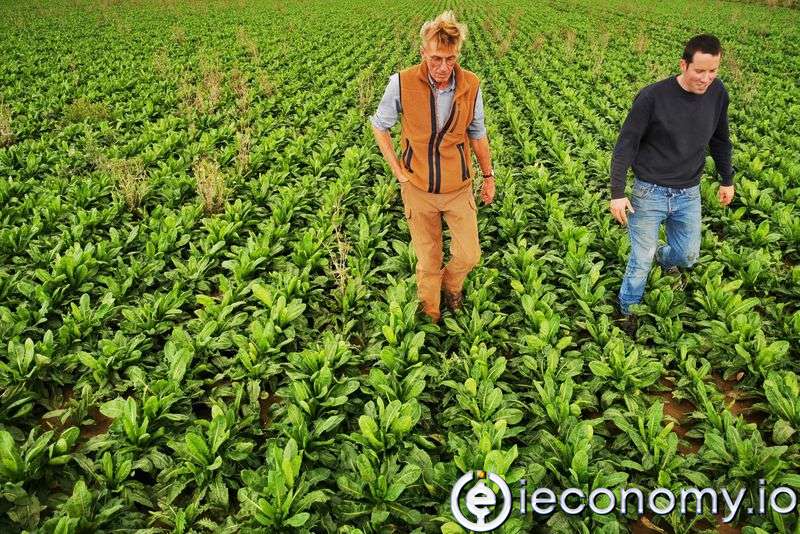5635
0
European vegetable producers warn of shortages due to energy crisis
In northern and western Europe, vegetable producers are considering shutting down their operations due to the energy crisis..

Yazar: Charles Porter
Yayınlanma: 22 Eylül 2022 13:59
Güncellenme: 4 Mart 2026 16:35
European vegetable producers warn of shortages due to energy crisis
Emmanuel Lefebvre produces thousands of tons of chicory each year on his farm in northern France, but this year he may abandon his crop because of the terrible energy costs needed to freeze the harvested bulbs.
In northern and western Europe, vegetable producers are considering shutting down their operations due to the financial hit from Europe's energy crisis, further threatening food supplies. Rising electricity and gas prices will affect crops grown in heated greenhouses over the winter, such as tomatoes, peppers and cucumbers, and those that need to be placed in cold storage, such as apples, onions and chicory. Chives are particularly energy hungry. Onions are harvested in the fall, stored at temperatures below freezing and then replanted in temperature-controlled containers to allow for year-round production. "We are really wondering if we will be able to harvest what is in the fields this winter," Lefebvre told Reuters at the site where his olives are packed. European farmers are warning of shortages. The expected hit to production and a rise in prices means supermarkets may turn to sourcing more produce from warmer countries such as Morocco, Turkey, Tunisia and Egypt. Farmers said rising gas prices are the biggest cost facing vegetable farmers growing in greenhouses. Meanwhile, two French farmers renewing their electricity contracts for 2023 said they were offered prices more than 10 times higher than in 2021. "I will plan the season in the coming weeks but I don't know what to do," said Benjamin Simonot-De Vos, who grows cucumbers, tomatoes and strawberries south of Paris. "If it continues like this, there's no point in starting another year. It's not sustainable."Costs Are Rising Everywhere
Farmers are not only struggling with rising energy prices. Fertilizer, packaging and transport costs are also rising, jeopardizing profit margins. "We are facing an increase of about 30 percent in the total cost of production," said Johannes Gross, deputy sales manager of the German cooperative Reichenau-Gemüse, whose greenhouses cover about 60 hectares. Between half and two-thirds of these extra costs are due to energy, Gross said. "Some of our colleagues are considering leaving their greenhouses empty to keep costs as low as possible. Nobody knows what will happen next year," he added. Greenhouse industry group Glastuinbouw Nederland says up to 40% of its 3,000 members are in financial trouble. Even in sunny countries like Spain, fruit and vegetable farmers are struggling with a 25% increase in fertilizer costs. Jack Ward, Chief Executive of the British Growers' Association, said it was inevitable that fruit and vegetable production would shift to warmer climates. "We will shift production further south, to Spain, Morocco and parts of Africa," Ward said. Follow Global Economic Developments on Social Media! Click here to follow Ieconomy official Facebook account! Click here to follow Ieconomy official Instagram account! Click here to follow Ieconomy official Twitter account!İLGİLİ HABERLER





European stocks soared and focus shifted to German retail sales after Powell's speech!

Forex Signal For TRY/USD: Inflation Slowdown in November.

Forex Signal For GBP/USD: Bullish Trend Still Not Breaking While Recovery Continues.

Forex Signal For EUR/USD: Starry US Data Points to Higher Fed Increases.

Forex Signal For BTC/USD: Downside Continues as Bitcoin Recovery Moves Less.
En Popüler Haberler
Yorum Yap
Yorumlar
Henüz yorum yapan yok! İlk yorumu siz yapın...